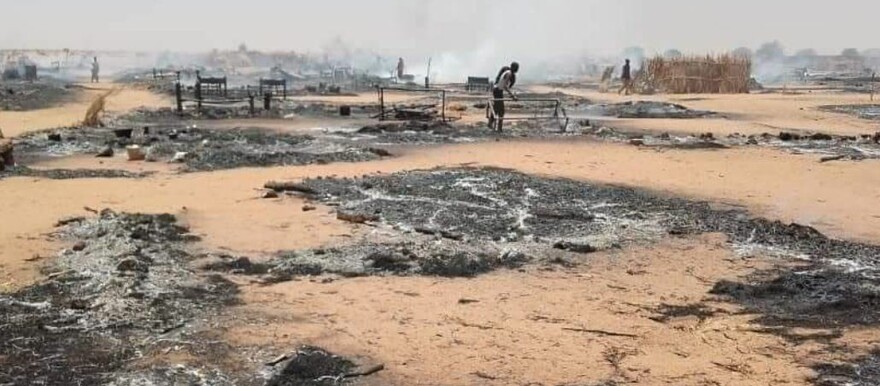The Humanitarian Aid Commission in Sudan’s North Darfur State has finally convened a meeting to discuss the catastrophic humanitarian situation in the state.
The meeting, attended by several international, regional, and national organizations follows the recent wave of displacement in the area north of Al-Fasher.
Dr. Abbas Yusuf Adam, the Commissioner for Humanitarian Aid in North Darfur, stated that the humanitarian situation in North Darfur is extremely dire due to the continuous increase in the number of displaced persons and their influx from other states of Darfur region and the area north of Al-Fasher.
“There is a severe shortage of food, health care, shelter, and protection due to the lack of intervention by international organizations since last October,” he said.
He emphasized that the current situation requires urgent intervention from the federal government, organizations, and donors.
Relatedly, Hassan Sabir Juma, the Director of the Displaced Affairs Department at the Commission, appealed to organizations and donors to urgently intervene to assist the victims.
He said that the humanitarian situation in North Darfur is dire in light of both old and new displacements resulting from the recent fighting west of Al-Fashir, with approximately 106 displacement centers within the city of Al-Fasher.
The city accommodates 25,000 families, the equivalent to 125,000 individuals, who recently fled fighting in West Al Fashir and are currently stranded in the areas of Shagra, Surafaia, Jingonat, and the Zamzam and Abu Shouk camps for the displaced.
“In light of these events, people are now in urgent need. At the top of the list of needs are water, food, health care, and materials related to staying in displacement centers, especially in the areas of Baraka, Surafaia, and Jingonat,” he said.
Meanwhile, Babikir Arabab, the Director of the Roots Organization and representative of national organizations, confirmed that the state is suffering from extremely complex humanitarian conditions following the displacement from the west of Al-Fasher.
“There is an estimated 32,000 families distributed in the western outskirts of the city who require urgent intervention from everyone, especially donors and the government, in addressing the water, food, and shelter crisis,” he said.
Arabab announced that organizations will conduct an urgent visit to the affected areas of the rural outskirts of Al-Fashir on Tuesday, urging everyone to join efforts to overcome the current crisis.
Juzouli Al-Douma, of the National Planning Organization, also appealed to all national and foreign organizations, charities, and the government for urgent intervention due to the critical humanitarian situation.
He stressed the need for surveys to determine the actual needs and to identify the most affected areas after the meeting with organizations, the commission, and the West Al-Fasher Events Committee, focusing on the water crisis that cannot wait.
“After the survey we conducted, we found that some villages have been completely burnt while others are partially burnt,” he revealed. “The purpose of the survey was to work on initial intervention measures.”




